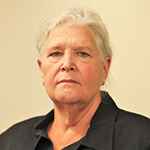Project NOW to host memorial service Friday
QCBJ News Staff
MILAN – For Nick and Angie DeVolder turning trash into treasure is much more than a hobby.
Their “small” business, Stella Sawmill, is rooted in a commitment to sustainability on such a massive scale it might be hard for Quad Cities home recyclers to get their heads around it.
But for cabinetmakers, woodworkers and others, 850 Second Ave. West has become…

Get immediate, unlimited access to all subscriber content and much more.
Learn more in our subscriber FAQ.
Do you want to read and share this article without a paywall?
